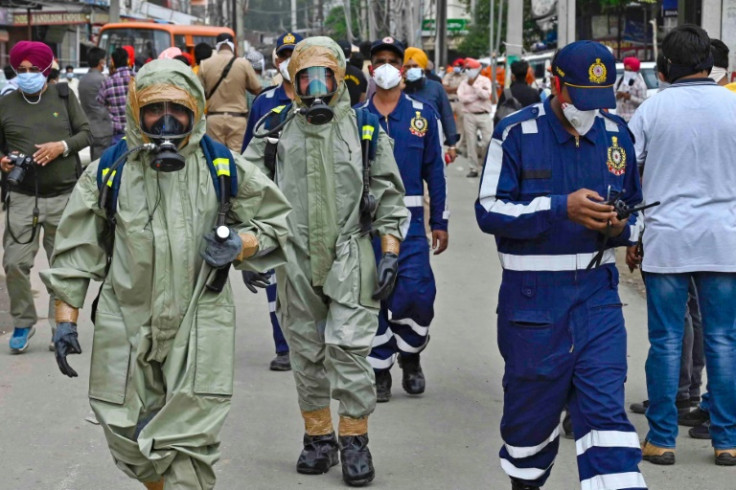Gas leak in India kills 11, toxic gas may have come from sewage manholes
The state government has also set up a five-member Punjab Police Special Investigation Team (SIT) to investigate the incident.

At least 11 people, including three minors, died following a gas leak in a city in the Indian state of Punjab.
The incident was reported from an industrial area in the Giaspura area of Ludhiana City on Sunday. According to local media reports, the gas emanated from manholes in the area.
It is suspected to be hydrogen sulphide, a poisonous gas that can cause death. Experts say exposure to even small concentrations of hydrogen sulphide can cause headaches, dizziness, and nausea. It smells like rotten eggs.
The state government had to deploy the National Disaster Response Force along with other local agencies to prevent any more deaths and assist with the evacuation process.
According to Ludhiana deputy commissioner Surabhi Malik, the NDRF detected high levels of hydrogen sulphide gas in the area, and an investigation is underway to find out what caused the tragic deaths.
"We are going to collect samples from manholes. It is quite likely that some chemical reacted with methane in manholes," Malik told Indian news agency PTI.
Meanwhile, the state government has also set up a five-member Punjab Police Special Investigation Team (SIT) to investigate the incident. The teams of the Punjab Pollution Control Board (PPCB), a state-level government agency, are also probing the incident.
A pollution control board team is also checking if industries located in the area dumped waste in the sewerage line, which might have led to the buildup of the highly toxic gas.
Meanwhile, Police Commissioner Mandeep Singh Sidhu has come down heavily on an official of the state pollution control board. "PPCB [Punjab Pollution Control Board] is the nodal agency to check pollution and the working of industries," Sidhu told the Indian Express.
"It is their job to check if industries are involved in any wrongdoing. It is only PPCB officials who can tell us which industries were complying with norms and which were not. What if some industry was dumping waste into sewage through an internal connection?" he added.
He further suggested that an electroplating factory might have dumped waste in the sewage and that it was being "done continuously, and the build-up finally led to this tragedy."
The tragic incident came to light after some people who had come to a grocery store in the Giaspura locality fell unconscious. Four died on the spot, while others were rushed to a local hospital for treatment.
Among the dead, three belonged to the family that owned the store, while five were from another family. The area has now been decontaminated, and the gas is no longer detected in the area.
#WATCH | Punjab: NDRF personnel reach the spot in Giaspura area of Ludhiana where a gas leak claimed 9 lives; 11 others are hospitalised.
— ANI (@ANI) April 30, 2023
Local officials say that the area has been cordoned off. pic.twitter.com/BuxUEb8SCq
One of the world's worst-ever industrial disasters happened in India after a large amount of methyl isocyanate (MIC) gas and other toxic chemicals leaked out of the Union Carbide India Limited pesticide plant in Bhopal in 1984, exposing over 500,000 people to the poisonous gas.
Hundreds of thousands of people were left with debilitating diseases in the wake of the tragedy, and it is estimated that 20,000 died as a result of the leak. Many within the impact zone were diagnosed with pulmonary fibrosis, aggravation of TB, chronic bronchitis, heart conditions, eye infections, impairment of memory, loss of fine motor skills, and reproductive issues.
The poison also caused genetic problems that researchers continue to identify in the region's population, three decades after the incident.
Union Carbide, which is now owned by the Dow Chemical Company, insisted that the tragedy was a result of "disgruntled employee sabotage." In 1989, Union Carbide agreed to pay US$470 million (£356 million) for damages caused in the Bhopal disaster and funded a hospital to treat the victims.
Numerous cases of negligence were filed in India and the US against employees of Union Carbide but were subsequently dismissed.
© Copyright IBTimes 2024. All rights reserved.






